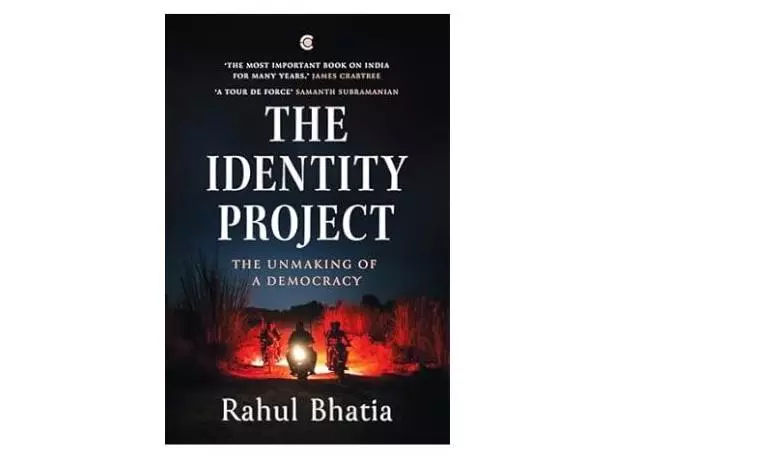Book Review | Who is an Indian anyway?

Perhaps the most revealing story in this book is that of Partha Banerjee, son of a devoted member of the RSS, and, in early life, himself an active member. Banerjee went on read Tagore, watch Satyajit Ray’s movies, and to study in the US, where he was influenced by liberal thinkers like Noam Chomsky, and turned against the RSS and the Hindu supremacist ideas it represented. His book on an insider’s view of the Sangh impressed the author, Rahul Bhatia, enough to meet him in 2022.
Here's what the book under review is about: Who, in the minds of Hindutva-based organisations such as the RSS and its associates, is eligible to be an Indian citizen? Starting with 2019 and the entry of the police into Jamia Millia university following protests against the CAA and NRC, and Delhi’s Shaheen Bagh protests, the author describes the history of the rift between Hindus and Muslims in India, starting with Arya Samaj, with Dayanand Saraswati and his stress on the holiness of cows, back in the 19th century.
From that point on, he traces the evolution of militant Hinduism, Hindutva, the formation of the RSS, the rise of its luminaries, Savarkar and Hegdewar and Golwalkar and the relatively unknown Sheuram Moonje. He describes their admiration for Hitler and Mussolini and how that has morphed into the Muslim-hatred that has spread through large parts of the country, and, worse, how this hatred has seeped into law enforcement and governance in the country.
Despite the quality of the writing and the depth of research, sometimes the author’s contempt for followers of Hindutva shows through. He quotes Partha Banerjee on the RSS: “...ninety-five per cent of its members are practically brainless idiots.” Further on, he himself says: “...its stances and truths existed in a state of suspended animation — an opinion held in 1949 was likely to be held in 2023.”
Well, this applies to footsoldiers of many political parties — Marxists, for example, who espouse a worldview without much evidence for its foundational beliefs. Besides, despising large chunks of your fellow-citizenry places one squarely in the camp of the RSS.
Regarding Golwalkar’s support for Hitler: Gandhiji supported the Khilafat, a colonist movement that violated many principles that Gandhiji preached, so it’s perhaps best not to judge these leanings too harshly. They could merely have been following a rule that’s commonplace these days: An enemy’s enemy is a friend.
Finally, there’s no mention that much of the discord that the country’s seen in recent years might be eliminated by a deeper understanding of humans and their fundamental rights and responsibilities beyond religious or political identities, with a transparent and consistent plank for conflict resolution (for example, does your right to worship noisily at night trump my right to sleep in peace?). So, at the end, the book leaves you with a sense of incompleteness.
The Identity Project
By Rahul Bhatia
Context (Westland)
pp. 449; Rs 899

